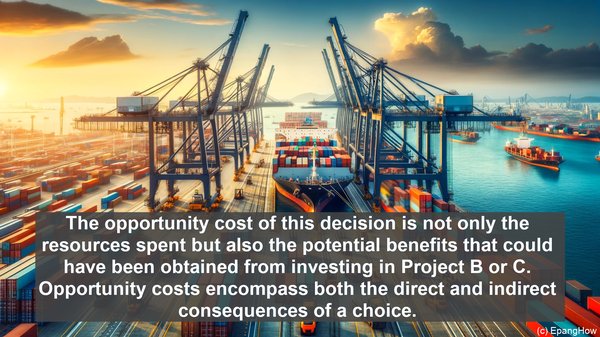Introduction: The Essence of Decision-Making
Hello everyone! When it comes to making decisions, we often encounter two fundamental concepts: trade-offs and opportunity costs. While they may seem similar, they have distinct meanings and implications. Today, we’ll delve into these concepts, exploring their definitions, differences, and real-world applications.
Defining Trade-offs: The Art of Compromise
A trade-off refers to the act of giving up one thing to obtain another. It’s essentially a compromise. In decision-making, we’re often faced with limited resources, be it time, money, or other assets. As a result, we must make choices, and these choices involve trade-offs. For instance, consider a student who has to decide between studying for an exam or attending a social event. By choosing one, they’re inevitably sacrificing the other. This is a classic example of a trade-off.

Understanding Opportunity Costs: The True Cost of Choices
While trade-offs involve sacrificing one option for another, opportunity costs take it a step further. Opportunity cost refers to the value of the next best alternative that is forgone when a choice is made. It’s not just about what we give up, but what we could have gained. To illustrate, let’s say a company invests its resources in Project A. The opportunity cost of this decision is not only the resources spent but also the potential benefits that could have been obtained from investing in Project B or C. Opportunity costs encompass both the direct and indirect consequences of a choice.

Comparing Trade-offs and Opportunity Costs
While trade-offs and opportunity costs are interconnected, there are key distinctions. Trade-offs are the choices we make, while opportunity costs are the consequences of those choices. Trade-offs involve selecting one option over another, while opportunity costs encompass the value of the forgone alternative. In essence, trade-offs are the cause, and opportunity costs are the effect. Understanding this distinction is crucial in decision-making, as it allows us to evaluate the true implications of our choices.
Real-World Applications: From Personal to Professional
The concepts of trade-offs and opportunity costs are pervasive in various domains. In personal finance, for instance, individuals often face the trade-off between saving and spending. By choosing to save, they’re forgoing the immediate gratification of purchasing something. The opportunity cost here is not just the item itself, but also the potential future benefits or experiences that could have been derived from that money. Similarly, in business, trade-offs and opportunity costs play a vital role in resource allocation, project selection, and even strategic decisions.
